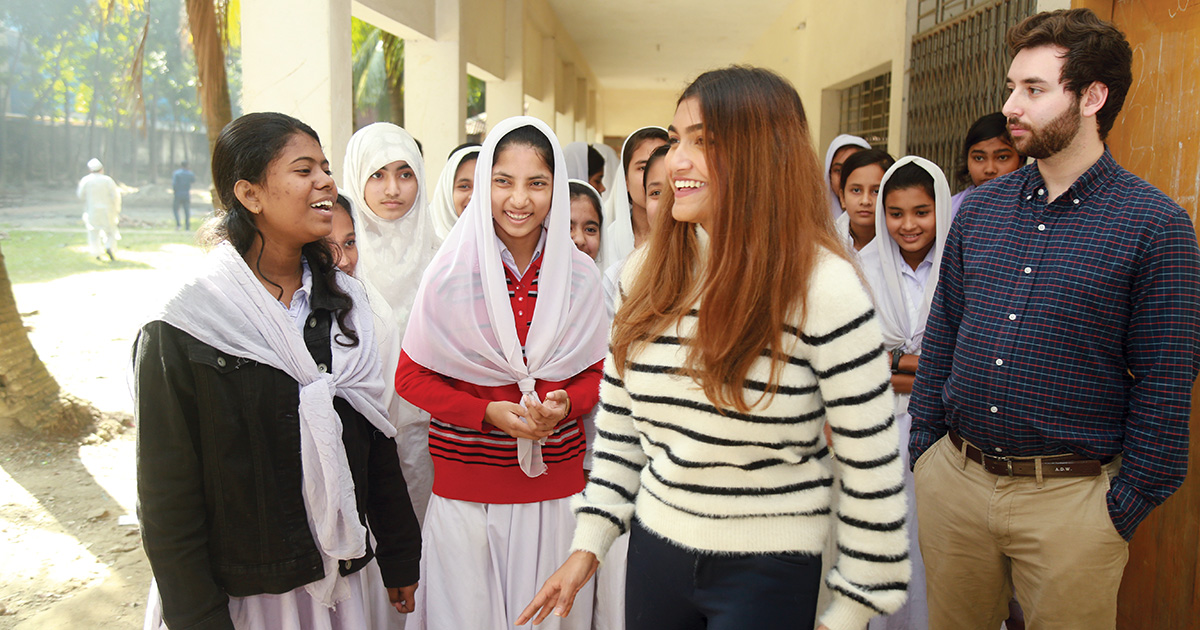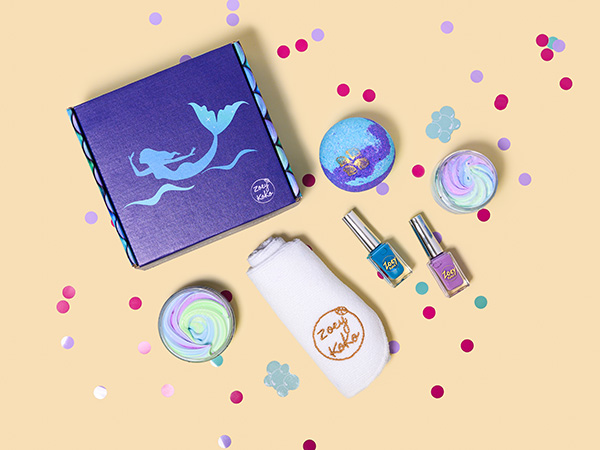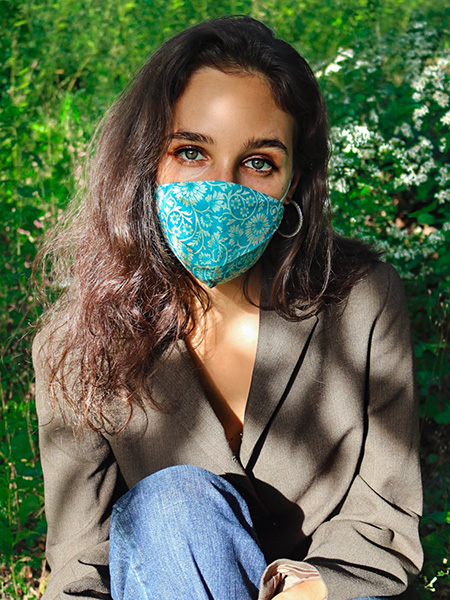Women-Led Teams Working to Empower Women

The 2021 B.E.T.A. Challenge finalists—a total of nine Babson College alumni, graduate, and undergraduate venture teams—work across many industries and geographies, but they share at least one common trait: They’re seeking to solve problems through their entrepreneurial leadership skills.
The B.E.T.A. Challenge finalists are competing for more than $250,000 in cash and prizes. The finals will be held Friday, April 16, and the winners will be announced Friday, April 23, on the final day of Babson Connect: Worldwide.
The final nine teams are working on a diversity of problems, including giving patients a voice in clinical trials, reducing single-use plastic trash, and even creating delicious, sustainable alternatives to meat. And, three of the finalists share even more, as women-led teams working to empower women.
Empowered Girls Become Empowered Women
As a medical esthetician, Sara Ferrer ’08 saw how many women deeply struggle with body image and confidence. In 2017, she set out to create a line of bath and body products for girls that would promote positive messages such as girl power and creativity. Her first product was the “Pamper Pouch,” a DIY spa kit designed to give girls an at-home spa experience.

Today, Zoey Koko offers 50 products on several e-commerce platforms, including ZoeyKoko.com, Maisonette.com, and Etsy, and in 44 retail store locations across the country. The Zoey Koko team has clear growth goals, and winning the B.E.T.A. Challenge would fund production runs and help the business scale faster. Ferrer hopes to put Zoey Koko products in 60 stores by May and launch an Amazon Store this summer.
By reaching girls with positive messages and developing their self-confidence, Ferrer dreams of having an outsized impact.
“They begin to realize what they can do and what they can be. This culminates to girls feeling worthy, capable, and strong. This is the impact that I hope Zoey Koko creates,” Ferrer said. “Empowered girls, after all, become strong women.”
Register now for the B.E.T.A. Challenge finale on Friday, April 16.
Unlocking Potential, Amplifying Voices
Aria Mustary ’21 and Maya Mutalik ’21, both finalists in the undergraduate track, are seeking to create impact for women in developing countries.
Inspired by her mother’s experience of an arranged marriage, Mustary founded Mai Soli Foundation, a social venture seeking to break the cycle of gender inequality through education. Mustary and her team partner with local educational institutions in Bangladesh to deliver mentorship and an entrepreneurship and business curriculum to young girls.
“Our mentors also create opportunities for the girls to showcase and apply what they have learned, putting theory into practice and preparing them to succeed in life,” Mustary said. “While other companies and organizations may push girls into paths they do not want, we make sure we address the root of the problem, by creating economic value and self-sufficiency.”
Currently, Mai Soli Foundation is working with 200 girls and their families to prevent child marriages. When the organization relaunches its pilot program, it plans to work with another 200 girls. If Mustary wins the B.E.T.A. Challenge, the $20,000 grand prize will help fund multiple initiatives, including expansion of the program into Dhaka, Bangladesh.
“The impact that I hope to have on our girls is to help them unlock their full potential,” Mustary said. “These girls are not in need to be ‘saved’ from anything or anyone but given a chance to climb heights they never thought they would be able to climb, to have the opportunity and guidance to solve problems, and to amplify the voices they already have.”
See all alumni, graduate, and undergraduate B.E.T.A. Challenge finalists.
Creating Meaningful Change
Likewise, Mutalik, a fellow Babson senior and B.E.T.A. Challenge finalist, was first inspired by a personal story. In 2017, Mutalik traveled to Ghana and met a seamstress named Vida. Their conversation about fabrics, patterns, and Vida’s life experience left a lasting impression on Mutalik. She learned that Vida didn’t own an electric sewing machine and was unable to grow her sewing business, and that access to financial resources was a handicap for many other seamstresses in Ghana.

Upon returning home, Mutalik realized that there was a demand for the unique, beautiful prints of West Africa. Bringing together her desire to empower and help women achieve financial independence and this demand for cross-cultural fashion, she founded Hope Sews, a socially conscious fashion brand. Today, Hope Sews partners with grassroots organizations including the Alliance for African Women Initiative (AFAWI) to provide resources and skill-building opportunities to low-income seamstresses in developing communities and invests 5% of profits into those efforts.
Aligned with the spirit of the B.E.T.A. Challenge competition, Mutalik is intentional about thinking big and taking action. Though she first set out to provide sewing machines to seamstresses, she quickly realized they needed capital and offered microfinance loans. When she determined microfinance loans were not enough to truly drive impact, she shifted focus to financial trainings, community support groups, and more.
In doing so, Mutalik demonstrates her mindset and commitment to solving a pressing problem and creating value.
“Our team now recognizes the importance of taking a step back while trying to solve complex problems and not getting attached to a single solution,” Mutalik said. “To truly create meaningful change for a group of individuals, organizations need to implement a holistic approach.”
Posted in Community






